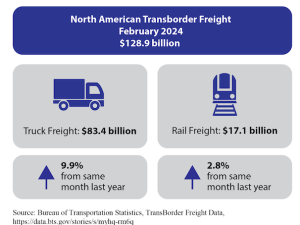The agreement would grant anti-trust immunities to the parties, so they could discuss 'criteria and procedures to be used to determine the right of admission or non-admission of trucks, cargo, or equipment to any and all terminals at the port.'
That 'blockade provision' ' which would enlist port tenants as the 'day-to-day enforcers of an unlawful 'concession' mechanism' ' would be 'unreasonable' under the Shipping Act, the IMCC claims in written comments filed on Monday.
Although the Port of Long Beach on Feb. 19 approved its own version of the Clean Truck Program ' one without a requirement that all drivers servicing the port be employees of trucking companies ' there is no reason to believe that the Port of Los Angeles would not include such a requirement in its version of the Clean Truck Program, the IMMC says.
The IMMC notes that the California Air Resources Board is already taking action to ban high-polluting trucks with its own state-wide Clean Trucks plan.
Although the ports may attempt to rely on their role as a proprietary agency to exempt them from preemption by federal law, the IMMC urged the FMC to discount such arguments. The goals of the ports' Clean Truck Programs are not proprietary in nature, since it does not involve the port's procurement of goods or services but instead aims to 'effect broader social regulation' such as the income and health care of truck drivers.
The agreement being sought by the ports and the terminal operators should also be rejected because it excludes motor carriers with a lawful right to enter the port by authorizing terminal operators to 'engage in an unlawful 'blockade' of port drayage operators,' the IMMC claims.
Although the comments filed by the IMMC are only aimed at convincing the FMC to reject the request for a discussion agreement between the ports and terminal operators, it also presents a preview of the argument the trucking group can be expected to make in any future litigation.







